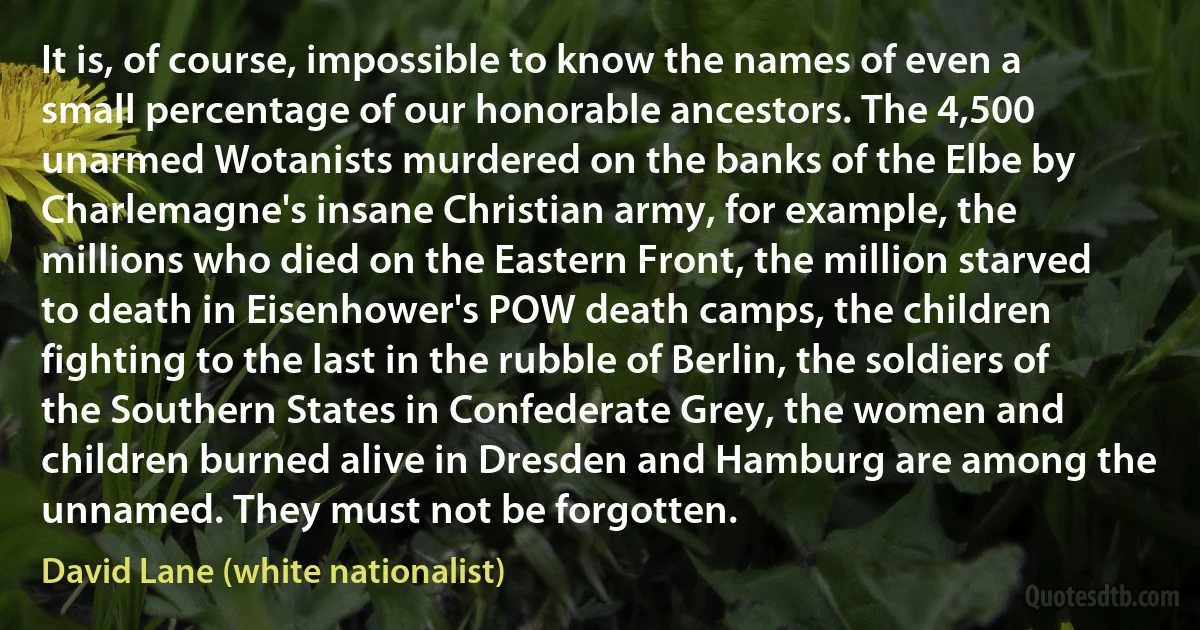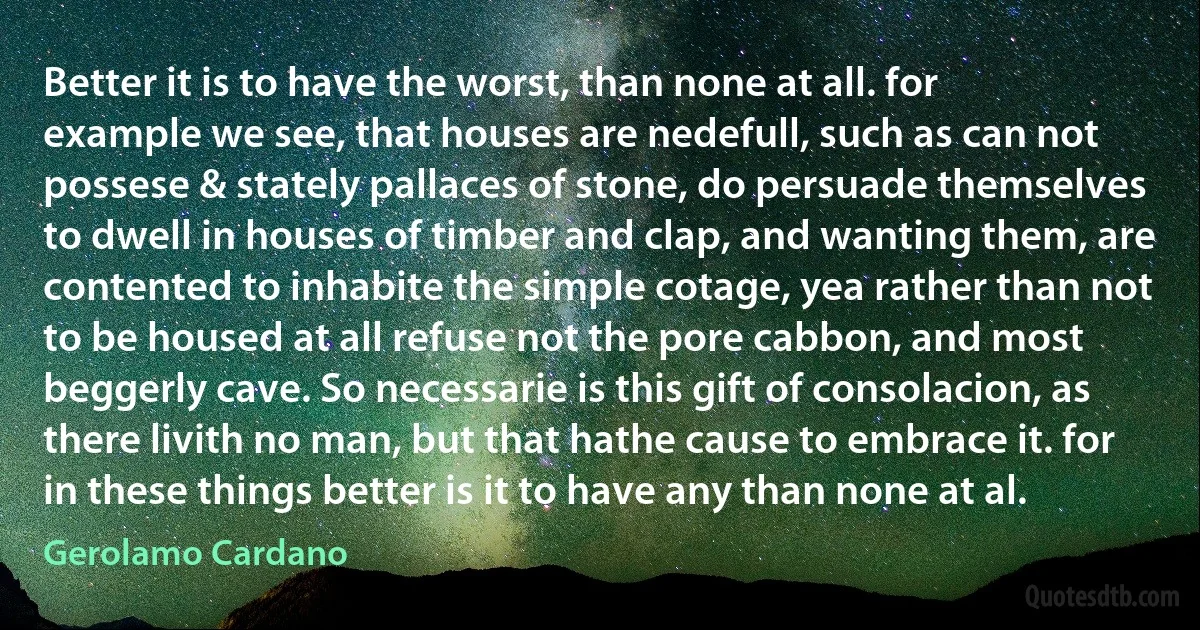Example Quotes - page 94
The word "Aryan” comes from the Sanskrit meaning "noble ones.” Secondly, every word we speak and every action we take sets an example for someone and influences someone. There is absolutely nothing noble about drug use or drunkenness. It does not advance or aid yourself, your family or your race. In fact, almost inevitably it makes a person a burden to family and friends.

David Lane (white nationalist)
The following is quoted as an example of distorted reporting in Pak papers : A wave of anti-Muslim riots has engulfed all corners of India these days and more than 50 cities are under curfew. Despite this, however, Muslims are being killed mercilessly...50 In India, this is something of a standard secularist column phrase on riots (see ch.11). And Aabha Dixit adds a comment on Pak reporting : The headlines only refer to the desecration of the Babri mosque. There is never a mention of the Hindus who fall to police bullets. Replace headlines with editorials, and this describes the situation in Indian secularist papers.

Koenraad Elst
Leave alone Urdu pamphlets, a neatly published English book from the impeccably Islamic Noor Publishing House (Delhi), Muhammad Samiullah's Muslims in Alien Society, is sufficiently explicit about the demographic designs of contemporary Islam. Samiullah rejects family planning as a Western ploy to diminish the numbers of the Muslim population in order to maintain its hegemony. The core of his argument is that birth control has no sanction from the Quran nor from the example and sayings of the Prophet. Since others have claimed just the opposite, a close reading of the source texts of Islam is needed.

Koenraad Elst
It explains, to name a current and important example, the grim and determined passivity of the Modi government regarding specifically Hindu demands, such as the abolition of the blatantly anti-Hindu (so, communally partisan and hence anti-secular) Right to Education Act, which has forced hundreds of Hindu schools to close down. ...

Koenraad Elst
In most poetic expressions of patriotism, it is impossible to distinguish what is one of the greatest human virtues from the worst human vice, collective egotism.
The virtue of patriotism has been extolled most loudly and publicly by nations that are in the process of conquering others, by the Roman, for example, in the first century B.C., the French in the 1790s, the English in the nineteenth century, and the Germans in the first half of the twentieth. To such people, love of one's country involves denying the right of others, of the Gauls, the Italians, the Indians, the Poles, to love theirs.

W. H. Auden
I'm not comfortable being preachy, but more people have to start spending as much time in the library as they do on the basketball court. If they took to the idea that they could escape poverty through education, I think it would make a more basic and long-lasting change in the way things happen. When we set up unrealistic goals and then don't achieve them, that's another example of internalized defeat. What we need are positive, realistic ideas and the willingness to work. Hard work and practical goals.

Kareem Abdul-Jabbar
I am surprised and disappointed that you have chosen to repeat the figure of £350 million per week, in connection with the amount that might be available for extra public spending when we leave the European Union. This confuses gross and net contributions. It also assumes that payments currently made to the UK by the EU, including for example for the support of agriculture and scientific research, will not be paid by the UK government when we leave. It is a clear misuse of official statistics.

Boris Johnson
A proper understanding of biology and culture both affirms the great important of biology in human behavior and also explains why biology makes us free. The old equation of biology with restriction, with the inherent (as opposed to the malleable) side of the false dichotomy between nature and nurture, rests upon errors of thinking as old as Western culture itself. The critics of biological determinism do not uphold the equally fallacious (and equally cruel and restrictive) view that human culture cancels biology. Biological determinism has limited the lives of millions by misidentifying their socioeconomic disadvantages as inborn deficiencies, but cultural determinism can be just as cruel in attributing severe congenital diseases, autism for example, to psychobabble about too much parental love, or too little.

Stephen Jay Gould
I consider imperfection a Darwinian spring of natural selection. For example, present day insects are identical to those of six million years ago: they were already perfect, and there was no reason for them to change. Man was instead imperfect, and this was the proxy for his own development and evolution.

Rita Levi-Montalcini
People are the common denominator of progress. So, paucis verbis, no improvement is possible with unimproved people, and advance is certain when people are liberated and educated. It would be wrong to dismiss the importance of roads, railroads, power plants, mills, and the other familiar furniture of economic development. At some stages of development - the stage that India and Pakistan have reached, for example - they are central to the strategy of development. But we are coming to realize, I think, that there is a certain sterility in economic monuments that stand alone in a sea of illiteracy. Conquest of illiteracy comes first.

John Kenneth Galbraith
Real awareness comes intermittently, in brief flashes of a second's duration. The man who can hold it for a minute, relatively speaking, inevitably changes the whole trend of the world. In the span of ten or twenty thousand years a few widely isolated individuals have striven to break the deadlock, shatter the trance, as it were. Their efforts, if we look at the present state of the world superficially, seem to have been ineffectual. And yet the example which their lives afford us points conclusively to one thing, that the real drama of men on earth is concerned with Reality, and not with the creation of civilizations which permit the great mass of men to snore more or less blissfully. A man who wanted to live would not waste even a fraction of a moment in the invention, creation and perpetuation of instruments of death.

Henry Miller
If you're going to make a living at this business - more importantly, if you're going to write anything that will last - you have to realise that a lot of the time, you're going to be writing without inspiration. The trick is to write just as well without it as with. Of course, you write less readily and fluently without it; but the interesting thing is to look at the private journals and letters of great writers and see how much of the time they just had to do without inspiration. Conrad, for example, groaned at the desperate emptiness of the pages he faced; and yet he managed to cover them. Amateurs think that if they were inspired all the time, they could be professionals. Professional know that if they relied on inspiration, they'd be amateurs.

Philip Pullman
In the absence of the gold standard, there is no way to protect savings from confiscation through inflation. There is no safe store of value. If there were, the government would have to make its holding illegal, as was done in the case of gold. If everyone decided, for example, to convert all his bank deposits to silver or copper or any other good, and thereafter declined to accept checks as payment for goods, bank deposits would lose their purchasing power and government-created bank credit would be worthless as a claim on goods. The financial policy of the welfare state requires that there be no way for the owners of wealth to protect themselves.

Alan Greenspan
To punish the guilty adequately exceeds the power of any civilised man; for the atrocities which have been committed are such as to be imagined and perpetrated only by demons sallying forth from the lowest depths of hell. But punishment must be inflicted, not only in a spirit of vengeance, but in a spirit of security, in order that the example of punished crime may deter from a repetition of the offence, and in order to insure the safety of our countrymen and countrywomen in India for the future. He will have to spare the innocent, and it is most gratifying that while the guilty may be counted by thousands the innocent must be reckoned by millions.

Henry Temple, 3rd Viscount Palmerston
There are some young Black women, however, that I particularly want to talk about, younger than I in any case, young Black women who are writing, who are inspirational to me. For example, a group of young women in Atlanta have a magazine called Sage. I'm impressed with Gloria Naylor's continuing to work. I'm impressed certainly with Alice Walker. I was hopeful and am still hopeful of.

Maya Angelou
Eventually an effective political ideology cannot be based on any certain religion. Religion can offer some contribution, but an entire political activism cannot be oriented in accordance with religion. Political history of this region has the example of religion-based politics attempted during Pakistan era and it failed. Not only in Islam, people in other religions of many regions try to keep on politics based on religion. It's not right. It's important and it should be remembered.

Ziaur Rahman
Everything I have written in these lectures underlines the importance to the intellectual of passionate engagement, risk, exposure, commitment to principles, vulnerability in debating and being involved in worldly causes. For example, the difference I drew earlier between a professional and an amateur intellectual rests precisely on this, that the professional claims detachment on the basis of a profession and pretends to objectivity, whereas the amateur is moved neither by reward nor by the fulfillment of an immediate career plan but by a committed engagement with ideas and values in the public sphere.

Edward Said
In a sense the present work is to be regarded as a secondary-study of the work of a group of writers in the field of social theory. But the genus "secondary study" comprises several species; of these an example of only one, and that perhaps not the best known, is to be found in these pages.

Talcott Parsons
I'm amazed that there is such misunderstanding of what our country is about, that people would hate us. I am, I am-like most Americans, I just can't believe it, because I know how good we are, and we've got to do a better job of making our case. We've got to do a better job of explaining to the people in the Middle East, for example, that we don't fight a war against Islam or Muslims. We don't hold any religion accountable. We're fighting evil. And these murderers have hijacked a great religion in order to justify their evil deeds. And we cannot let it stand.

George W. Bush
I believe that some of the strongest stories we can have begin with very simple archetypes...The great mother, or the great father, for example. And you work your way from that, slowly, to more complexity. The idea of this guy who wants to be with the woman he loves – you can say the same of the movie Gladiator, for instance. If you strip everything down to the basics, it's just about Maximus wanting to go back to his wife and every other thing stopping him. Even Homer's Odyssey; he just wants to go back and the entire universe is conspiring against that ambition.

Chigozie Obioma



